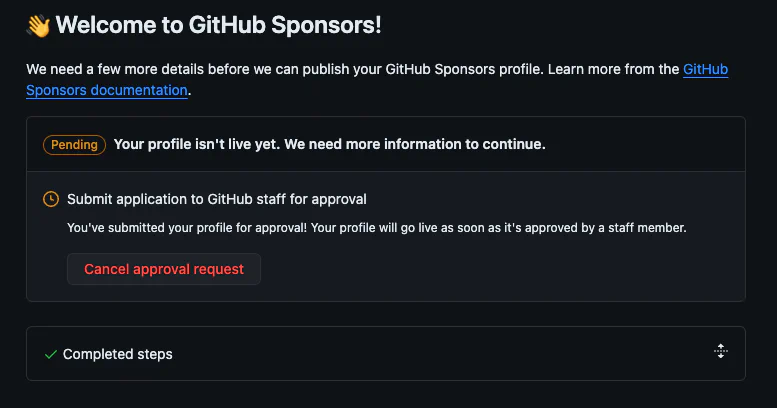A tip for a tip

I have been immersed in the world of IT for as long as I can remember. It is a wonderful realm that anyone, anywhere can access. All it takes is a bit of persistence and a willingness to learn to become part of it.
Although it was not always as easy as it is today, even now, when almost only our imagination sets the limits, it is still challenging to make one’s mark in the open-source world. Things haven’t kicked off for me as I would have hoped.
Numerous Projects
When I was a beginner entrepreneur/developer, I didn’t think sharing accessible knowledge was crucial. I just wanted to participate in one project or create something that could support my future ideas.
At that time, I didn’t realize that almost everything I touched was someone’s contribution to the world. Don’t believe me?
- Are you a developer? What language do you write your code in? C? PHP? Java? Go? Which language isn’t open-source?
- Are you a system administrator? What server do you operate? Linux? Microsoft? Are all components on them closed-source? I doubt it.
- Are you an entrepreneur? How do you plan to promote your work to the world? Surely not through WordPress or other services? Perhaps those assisting your work also use open-source?
- Are you a private individual? Do you watch movies? Visit websites?
So, the question isn’t whether there is a project to support, but which of the many available projects should be supported. I could easily list so many projects I’d like to assist that the whole post would just be a list.
Here’s just a taste:
- OWASP
- NIST
- Coraza WAF
- ModSecurity
- Kubernetes
- CrowdSec
- Grafana
- etc. And I haven’t even exerted myself.
Start Contributing
All that remains is to pick a project you like and start helping the community. Simple, isn’t it?
We often forget that nothing is free. We would love to assist a project dear to us, but what if we lack the time, the knowledge, or the support? This is why I write this post, to potentially assist open-source enthusiasts, hoping my experience will be beneficial.
Time
First, let’s address the issue of time. We might be geniuses and come up with new software that radically changes the world. But turning that into reality takes time. How much? Perhaps years, or even a lifetime. We certainly don’t have that much free time.
Therefore, it might be more effective to join a community already working on a cause and collectively create something wonderful. Did you know that even an experienced developer, DevOps, or guru might take up to three months of full-time work to familiarize themselves with a technology, understand the company culture, the goals, and how the product works? And they get paid for this. So, do you have enough time to learn about a project?
Unfortunately, I don’t, which is why I look for ways to make that time.
Knowledge
Knowledge can only be acquired one way: through experience. You need to read a lot, keep up with the news, and learn from others’ experiences. However, we must clarify one thing. We will never know everything, nor will we be smarter than those working on a project (at least not in that domain).
The math is simple. Suppose we are geniuses with an IQ of 160. Five people are working on the project, each in different areas, with an average IQ of 140. Which is more? Five times 140 or 160? And we haven’t even discussed their experience yet. Is this an obstacle? No, it is not. It is a challenge for growth.
Support
This is an interesting topic. What would you need to participate in this wonderful community life? Time? Knowledge? Money? Or just simply support.
Support from your family for having such goals. Support from community members for helping their work. Support from the world for trying to make it a slightly better place.
GitHub Sponsors
We know many forms of support when we talk about open-source. However, when I first heard about GitHub Sponsors, it seemed like a herald of a beautiful new world. Developers and brilliant minds around the world have already performed miracles for us, but this opens up a completely different form of cooperation.
Location-independent intellectual freedom. We find a noble cause and can immediately become part of it. Anyone can register and receive a few dollars for help. The full amount of the support can reach the developers, the team members. And if they receive enough support, we can participate in this community full time. Unfortunately, this world has not yet arrived.
One problem is that the service is still not accessible from anywhere in the world. Another issue is that a dollar’s support sounds good, but there are more problems than benefits. So, I am not surprised that many would rather not bother with it all. The problem lies in the potential local tax laws and the fact that very few understand what can be done with it.
How could this system be better?
e-Residency
What I describe here is not advice. I am neither a lawyer nor an accountant. And they couldn’t provide much useful advice either. So, the question remains open. What digital company form would suit a digital world?
Why is this important? If we want to withdraw or benefit from support, it counts as income, which must be taxed. How much and when is determined by local laws. Does it make sense to tax one dollar? No. Just the paperwork costs more.
What if we didn’t have to deal with that? What if we only had to deal with paperwork when it’s worthwhile? Say, at monthly revenues of 1000, 2500, 5000 dollars.
Perhaps the answer could be the Estonian e-Residency program. Anyone, anywhere in the world, can participate in it. (Of course, there are some pre-screenings.) But with its help, you pay 0% tax on company income. And you only need to engage in actual paperwork when a private individual wants to benefit from the income. In other words, if we hire employees or withdraw dividends.
I hope you now understand the correlation. The 100% supporting Github Sponsor donations can reach an entity digitally created and managed where there’s 0% tax on business income.
Is it feasible?
As of now, this concept seems entirely feasible to me. Github sponsor payments occur through Stripe. If we create an Estonian OÜ, we can use Stripe as a payment gateway. But whether this is really so is up to you to evaluate.
At this moment, I pressed the Sponsor publish button.

Tip for a Tip
I thought a lot about what to ask for and how much, and what I could give in return. That’s why I named one support package Tip for a Tip. Need more introduction? The first step is always the hardest, so I hope what I’ve written will help many.
And I hope my dream will one day come true. Location independently, anyone, from anywhere, at any time, can help in the life of our digital community.
Thank you:
- GitHub, and GitHub Sponsor for your achievements in supporting the community.
- Thank you, Estonia, for the e-Residency program and for making the challenges of digital life so much easier.
- Thank you Enty.io (affiliate), for supporting my company operations with so much development and help.
Tip for a tip:
- Personal: LeeShan87
- GoSecNinja (pending): GoSecNinja